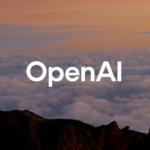Capital expenditures have become a hot topic as big tech companies race to build AI infrastructure.
In a bold move that signals its deep commitment to artificial intelligence, Google’s parent company, Alphabet, has announced plans to invest approximately $75 billion in capital expenditures in 2025. This staggering figure, revealed in Alphabet’s Q4 2024 earnings release, underscores the company’s aggressive push to dominate the AI landscape.
A Major Leap in AI Investments
The investment marks a significant jump from Alphabet’s $32.3 billion in capital expenditures in 2023. While Google has not explicitly stated that all of this expenditure will go toward AI, the industry’s current trajectory strongly suggests that a substantial portion will be funneled into AI infrastructure, research, and development.
The race to advance artificial intelligence has become increasingly competitive among big tech players, with companies like Microsoft, Amazon, and Meta making hefty investments in AI-driven products and services. With this announcement, Alphabet is reaffirming its position at the forefront of this technological revolution.
Google’s AI-Driven Growth and Revenue Surge
AI is not just an expense for Google—it’s a massive revenue driver. In Q4 2024, Alphabet reported $96.5 billion in total revenue, reflecting a 12% year-over-year increase. Google Cloud, a crucial division in the AI arms race, posted a 10% increase in revenue, reaching $12 billion. The company attributes this growth to a surge in demand for Google Cloud Platform (GCP), AI infrastructure, and generative AI solutions.
Sundar Pichai, Alphabet’s CEO, highlighted that the company is developing “very good ideas for native ad concepts” in its Gemini AI assistant. Additionally, Google is preparing to roll out new Search experiences throughout 2025, signaling further AI integration into its core products.
AI Innovations and Expansions
Alphabet has made significant strides in AI, with several major announcements in Q4 2024:
- Gemini 2.0: The next generation of Google’s AI model, promising improved performance and broader capabilities.
- Project Mariner: An AI-powered agent designed to execute tasks directly within the Chrome browser.
- Deep Research Tool: A smart AI assistant that can autonomously conduct web-based research for users.
- Android XR Mixed Reality OS: Google’s foray into extended reality, positioning itself in the growing mixed-reality market.
These innovations demonstrate Alphabet’s ambitious vision to embed AI deeper into its ecosystem, from cloud services to everyday user interactions.
Regulatory Hurdles and Potential Challenges
Despite its financial success and AI advancements, Alphabet faces mounting regulatory scrutiny. In Q4, the U.S. Department of Justice (DOJ) proposed a significant antitrust remedy, suggesting that Google divest itself of Chrome following a ruling by Judge Amit Mehta that classified the company as a monopolist in the search and advertising markets. If enforced, this could reshape Google’s business model and impact its future AI strategies.
Waymo’s Performance and Alphabet’s “Other Bets”
One of Alphabet’s notable ventures, Waymo, had a promising 2024 as the company continued to refine and expand its autonomous vehicle technology. However, Alphabet’s “Other Bets” segment, which includes Waymo, reported lower revenue and higher losses year-over-year, indicating that some of its experimental projects still have a long way to go before becoming profitable.
What’s Next for Google and AI?
With $75 billion in planned investments, Google is gearing up for one of the most transformative years in its history. AI will likely play a pivotal role across all of Google’s products and services, from Search and Cloud to advertising and hardware.
As the battle for AI supremacy intensifies, one thing is clear—Alphabet is going all in. With groundbreaking AI developments, expanding cloud infrastructure, and a massive financial commitment, Google is poised to shape the future of artificial intelligence like never before.
However, with increasing regulatory challenges and fierce competition from tech giants, the road ahead won’t be easy. Will Google’s aggressive AI strategy pay off? 2025 will be a defining year for Alphabet’s ambitions in artificial intelligence.










